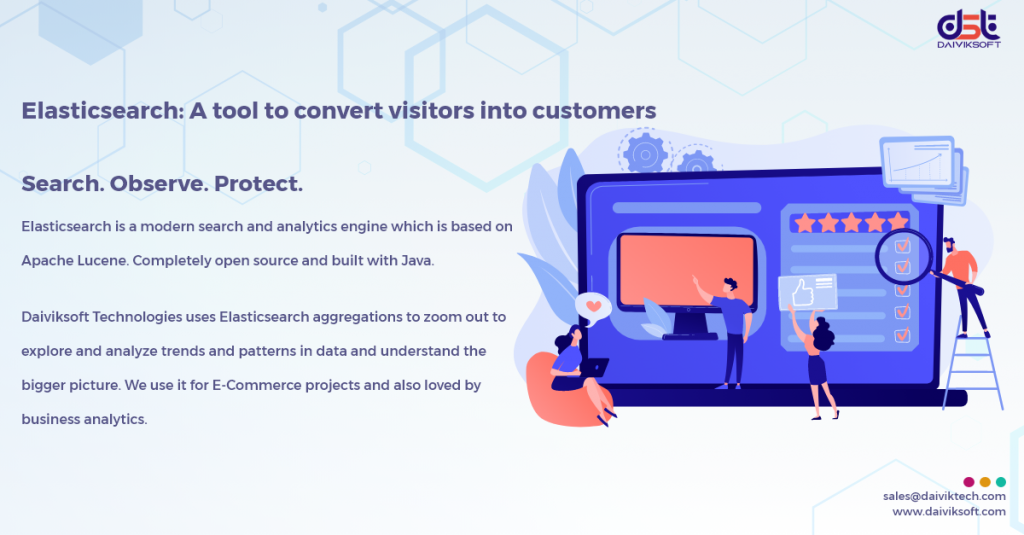Elasticsearch is a search engine based on Lucene. Elasticsearch is a distributed, multitenant-capable full-text (RESTful) search and analytics engine with an HTTP web interface and schema-free JSON documents capable of solving various use cases. Elasticsearch helps to perform and combine structured, unstructured, geo, metric, and any other searches needed.
Over the years, Elasticsearch has garnered attention of developers and has become one of the most popular and preferred search technologies. Some of the top companies that use Elasticsearch include LinkedIn, eBay, Stack Overflow, Uber, BBC, and Netflix.
Some of the advantages of using Elasticsearch are:
· Scalability: Elasticsearch can store petabytes of data and can be deployed on a huge cluster of computers, ranging from one single node to hundreds of nodes without affecting the performance; thus, allowing the user to manage complexity of the distributed design. Elasticsearch takes care of all complexity!
· Super-Fast: As compared to a traditional RDBMS, Elasticsearch indexes and queries data in near real-time (i.e. within a single second), making it one of the fastest search engine technologies. Elasticsearch provides complex search results in milliseconds.
· Inverted-Indexing: Elasticsearch uses the inverted-indexing mechanism that indexes the documents passed to it and thus provides high-performance results.
· High-Level API: Elasticsearch provides high level APIs that are developer-friendly; which makes their job much easier. This set of API is RESTful that works over HTTP and helps make the process of indexing as well as searching easier.
· Schema-Free: All documents are stored in JSON format.
· Multiple-Usage: In addition to full-text searches, we can use Elasticsearch for auto-suggest, auto-complete, spell-checker, geolocation search, enterprise search and much more.
· Manage Huge Quantity of Data: We can store billions of documents inside a single index and each cluster can hold up to petabytes of indexes, which virtually makes the storage limitless.
· ELK Stack: This is a new stack of three open-source technologies, which have become one of the world’s most popular log-management platforms. ELK stands for Elasticsearch, Logstash and Kibana.
Apart from having vast experience in Elasticsearch services, Daiviksoft also have considerable experience and great command on the other Elastic Stack Components like Kibana, Beats, and Logstash and we can work flawlessly with such Elastic stack components.
Daiviksoft Technologies can build a search engine for your E-Commerce, Enterprise and other projects. Tell us more about your project and your ideas so we can help to find the most efficient solution for you to grow.

